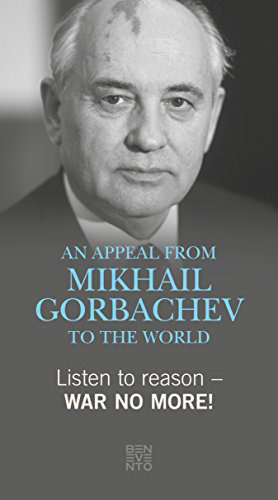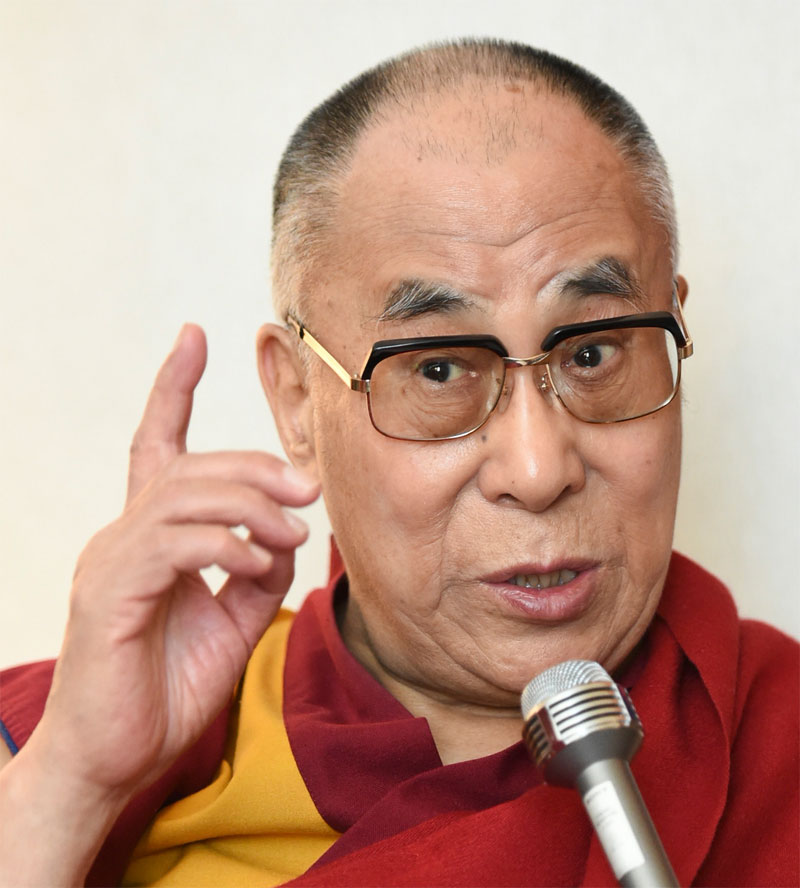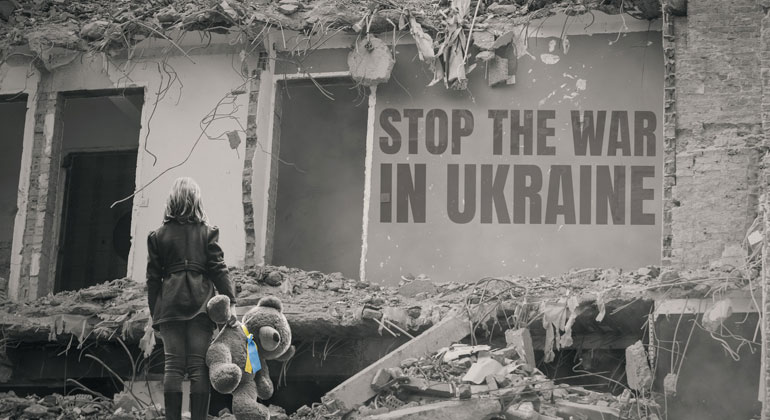Creating peace – but how?
May 8, 1945 – May 8, 2022 – 77 years of peace – What a gift!
After centuries of wars in Europe, in the new unity of the European Union (EU), no member has ever attacked another militarily. Rightly, the EU received the Nobel Peace Prize ten years ago. But on this May 8, 2022, war and peace are being argued about – also and especially in Germany.
Intellectuals around the Green politician and publicist Ralf Fücks call on the German government in an open letter to continuously supply weapons to Ukraine. Previously, a group around Alice Schwarzer had warned against exactly this. The group around Ms. Schwarzer warns the Chancellor of the dangers of German arms deliveries because this could increase the danger of a third world war, even a nuclear war. Ralf Fücks’ group fears the same if Germany does not supply weapons.
A culture of doubt
I confess that in this war of aggression against Ukraine, arbitrarily started by Russian President Putin, I do not know which side is ultimately right. We can only know one thing: Both sides can be guilty. Every decision has its dark side. Every decision claims human lives. Every decision makes people guilty.
The supporters of arms deliveries cannot rule out that they contribute to further escalation. And the opponents of arms deliveries, however, also cannot exclude the possibility that they are guilty of failing to provide assistance. The two positions of the letter writers also reflect the state of mind of the German population. We are divided on this issue. We should listen to each other especially now. Here, too, dialogue is more helpful than mutual name-calling. There is also a culture of doubt.
Somewhere between the positions of the two “Open Letters,” philosopher Jürgen Habermas supports the German chancellor in his often seemingly hesitant stance when it comes to arms deliveries. I, too, find a chancellor who is hesitant about arms deliveries more sympathetic than a strident one.
Pope Francis has also expressed doubts about arms deliveries from outside these days, but at the same time underscored the right of every country to defend itself. Under international law, this right is undisputed. However, every real pacifist must ask himself how Ukraine is supposed to defend itself without weapons in this war of annihilation by Putin. Perhaps we now need a short detour “create peace with weapons” to achieve the long-term goal “create peace without weapons”.

The fact is that today’s ruler in Moscow is called Putin and no longer Gorbachev. Our problem is: There is no Gorbachev far and wide today and if there were, he would be in prison under Putin. Perhaps we now realize anew what we owe to Gorbachev.
But there is one thing we should always keep in mind: whichever side of the letter writers we are on: It is always the people in Ukraine who are affected first. Their young men are killed, their women are raped, their children and their old people are forced to flee. German know-it-all attitude is out of the question.
So German pacifism cannot mean that we can recommend to the Ukrainians from the safe ground of our country: Please surrender! That would be pacifism in the sense of the aggressor. It would be a “pacifism” which still holds the door open for the aggressor.
The original ethos of all religions and wisdom teachings is called: “You shall not kill”. But this also means “Thou shalt not let kill,” if you can prevent it. Therefore, during the mass murder in Rwanda in 1994, it would have been necessary and morally right if the UN soldiers present had tried to prevent the mass murder – even with weapons.
As a pacifist in the spirit of Jesus and his Sermon on the Mount, I hope for the power to let myself be killed rather than to kill myself. But I do not have the right to let my wife, my children and my fellow citizens be slaughtered, if I see the possibility to prevent this – even with weapons. To let slaughter defenceless is not a pacifism of the Sermon on the Mount, but a “pacifism” in the sense of the aggressor. Jesus was not a political fool, but a realist. His proposal is called: pacem facere – to make peace – but how? In case of doubt, it has to be argued about as it is now in Germany. What is often forgotten in the process: Even the original German pacifist Bertha von Suttner considered defensive wars to be legitimate. And the most famous German pacifist Albert Einstein differentiated between “reasonable pacifism” and “irresponsible pacifism”.
The Jesuan pacifism does not mean: Let everything be offered to you. It rather means: Be smarter than your enemy, be the first to approach your enemy and never forget: He is a human being like you – with fears and hopes.
The Dalai Lama has exemplified pacifism for decades

The Dalai Lama emailed me the following text these days: “The conflict in Ukraine has shaken me deeply. Our world has become so interdependent that a violent conflict between two countries inevitably affects the rest of the world. War is outdated (“war is over”) – nonviolence is the only way. We need to develop a sense of the interconnectedness of humanity by seeing other people as brothers and sisters. In this way we will build a more peaceful world.
Problems and disputes are best solved through dialogue. True peace comes from mutual understanding and respect for each other’s welfare.
We must not lose hope. The 20th century was a century of war and bloodshed. The 21st century must be a century of dialogue. I pray that peace will return quickly to Ukraine.” The Dalai Lama
Especially in the nuclear age and especially now in the time of the Ukraine war, we need a strong peace movement. And strong pacifists.
Right now, pacifism may seem more like a distant dream. But still like a dream. Important goals have always been like distant dreams. That was the case with the abolition of slavery, the overcoming of child labor, and the introduction of women’s suffrage. Or the dream of peaceful German reunification. In the summer of 1989, I didn’t believe in German reunification either. But by the fall of that year, the dream had already come true. This shows:
Today’s dreams and visions are often tomorrow’s realities. Our most important fuel remains hope and the desire for a better future. Even the visionary Gorbachev says to this day: “The victor is not the one who wins battles. The victor is he who makes peace.”
- Mikhail Gorbachev “Listen to reason – War no more!: An Appeal from Mikhail Gorbachev to the world” (English Edition)
- Mikhail Gorbachev “An Appeal from Mikhail Gorbachev to the world” – (Russian Edition)
- “An Appeal to the World: The Way to Peace in a Time of Division” – by Dalai Lama (Author), Franz Alt (Editor)
Source
Franz Alt 2022 | Translated with www.DeepL.com/Translator (free version)








